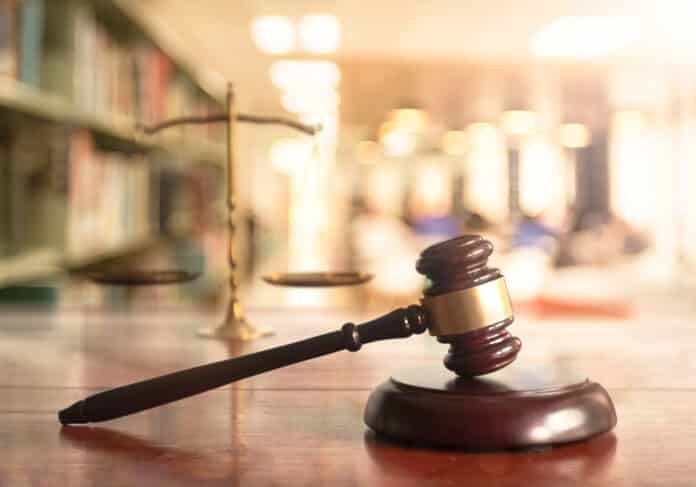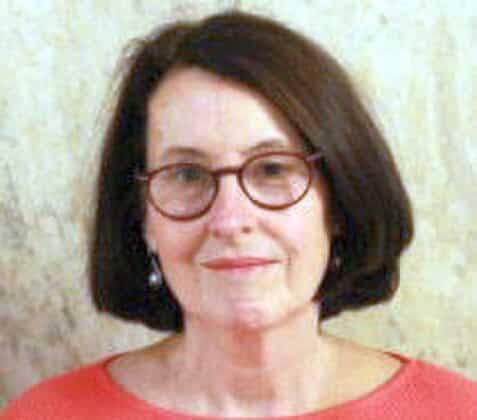HANCOCK COUNTY — While court is still in session every morning for what is normally the busiest courtroom in the county, only essential hearings are being held in Hancock County Superior Court 2.
Judge Dan Marshall is presiding over initial hearings on new arrests, which have been few: In the past 10 days, only four people have been booked into the jail, and most days, the jail log is empty. On other cases, Marshall is only making decisions where it’s absolutely necessary. All other cases are getting rescheduled.
“I don’t like that,” Marshall said. “I’d rather be resolving than rescheduling things.”
[sc:text-divider text-divider-title=”Story continues below gallery” ]
It has been a complicated exercise.
“With as many cases as I normally have, it’s a giant jigsaw-puzzle to re-arrange all the cases in some sort of order that makes a little bit of sense,” Marshall said.
Marshall typically hears dozens of cases a day. On Tuesday, March 31, only nine cases were on the docket, and six of those ended up being scratched from the calendar for one reason or another.
Superior Court 2 is normally packed with lawyers, prosecutors, defendants and others but is now limited to 10 people.
“I have a big courtroom, and when you put four or five people in there at a time, you can keep people pretty far apart,” Marshall said with a laugh, referring to social distancing.
As is the case everywhere else, it’s a slower time for the county’s judicial system. The judges received permission from the state Supreme Court last month to suspend most county court operations. Since then, traffic through the normally busy courtrooms has slowed to a trickle.
In Superior Court 1, where many felony cases are heard, Judge Marie Castetter is managing to stay busy. She’s resetting cases for after May, 4, the earliest date allowed so far by the Indiana Supreme Court to reset nonessential hearings.
Castetter was hoping her court could still hear cases involving child support and parenting issues. But after Gov. Eric Holcomb’s stay-at-home order on March 23, she has limited hearings only to those who insist an emergency appearance is needed.
“But, the ultimate goal of the court is the health and safety of the community,” Castetter said.
Some of the essential hearings keeping her busy include initial hearings and detention hearings with the Department of Child Services when a child is removed from a home. On Wednesday, April 1, Castetter had an emergency guardianship hearing on an elderly person, and she’s continuing to conduct protective order hearings.
“But things have slowed down considerably,” she said.
Initial hearings in criminal cases are important so defendants can be advised of their rights and so bonds can be set.
Lawyers are also being proactive, Castetter said. Many are reviewing cases and requesting bond reviews for inmates through video sessions that may seem appropriate for a reduction.
“If it will ease jail numbers, we will hear the case,” Castetter said.
As of Thursday, the jail population was the lowest it has been in memory: 152 people were in jail, compared to 230 before the pandemic.
In Hancock County Circuit Court, where the bulk of major felony cases is heard, Judge Scott Sirk said court is open for business, just in a different way. “We’re going to beat this and get through this and we’ll probably be better and stronger in the future,” Sirk said. “I think we’ll adapt, probably be more efficient.”
Sirk is conducting all his pretrial conferences by phone. Any initial hearings for his court and Superior Court 1, which he’s helping with, are being done via video conferencing.
Sirk has also picked up Marshall’s pretrial release work, which has only been a couple of cases to date.
“There is less movement in the courts, less things to be done,” Sirk said.
All the judges noted that whenever restrictions are lifted and they can get back to business, the calendar will be hectic.
They also say it’s been different not having lawyers and the community in their courtrooms, and that the courthouse does have a different atmosphere. The clerk’s office and the election office both have reduced hours during the pandemic, as has the probation department.
“It’s been very odd,” Marshall said. “The courthouse has very few employees, so on weekdays, it’s kind of like being in here on a weekend.”
The silver lining? Utilizing technology. While Marshall said the courts use technology throughout the course of normal courtroom work, they’ve used it more the past few weeks. It’s an effective tool and could open up the door for further use in the future, Castetter and Sirk said.
“We’re learning as we go along,” Castetter said.
For Sirk, the use of technology has been crucial, particularly since he has to continue holding Drug Court, where they plan to utilize video conferencing.
Sirk noted individuals in Drug Court need to take part in their regularly scheduled meetings and said he worries about those who have abused drugs during the pandemic.
“Someones, down time can make things worse,” he said.






